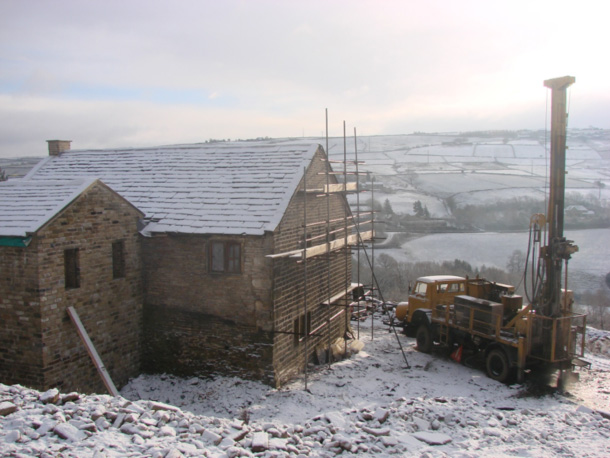


Case Histories
This listed barn needed both heat and water. During the renovation and conversion high levels of insulation were incorporated in the floor, walls and roof and to minimise heat loss through air flow a mechanical ventilation system with heat recovery was installed. Underfloor heating on both floors ensures that the barn can be heated using low temperature water.A borehole in the front garden provides the water for domestic consumption, and to supply ground source heat to the heatpump. The heatpump provides both domestic hot water and warm water for the underfloor heating. A Renewable Heat Incentive payment of £1,250 has already been paid by the government and the system will be eligible for the ongoing Renewable Heat Incentive tariff payments, which will cover the cost of the installation. The barn is being heated at a cost which is a fraction of the running cost of conventional fossil fuel boilers.
The ground water which is extracted from the underlying chalk is hard and contains manganese and iron a water treatment installation ensures the fitness of the water for consumption. A variable speed borehole pump ensures that the correct amount of water is drawn dependent upon the consumptive requirements.

Water and heat from a single borehole
During the renovation of this listed farmhouse, it was decided to replace the spring fed water supply with a water well. Earthtest Energy suggested that the same borehole could provide space heating and domestic hot water using a Soleco open loop heatpump. The underfloor heating fitted throughout the property uses water at up to 45°C, whilst domestic hot water is heated to 60°C.
The installed system generates Renewable Heat Incentive payments of £43,841 plus inflation over a seven year period, which significantly exceeded the cost of the total installation. Annual savings of £1,800 against biomass pellets, make this cost efficient solution, which also minimises carbon dioxide emissions.




